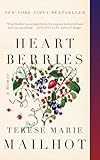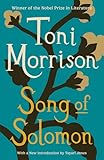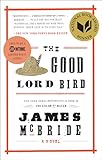Before 2020 became the 2020 that it became, there was a little sliver, a little alley of time where it seemed like we would just be embarking upon a normal late capitalist American hellscape of the type we’ve grown accustomed to over the past several years. Yes, our reality was presided over by the idiotic bluster of an orange grift monkey; yes, the planet was dying; yes, every single group other than white men was on the daily having an experience that landed somewhere on the spectrum between being painfully oppressed and being killed, and most of those groups were willfully complicit in the oppression of some other group. So yes, it was already pretty bad as narratives of a moment go. But it could actually get worse and we didn’t know it yet. What an amazing thing. The moment where things aren’t yet worse as remembered from the moment when they are.
I entered into this time with the idea that I was going to read more books, which as a writer was not a thing I think I was doing enough of. I did not read a lot of books growing up. Which is not to say I didn’t read a lot, because I did. It’s just that I read the same book(s) over and over. I guess it was early expression of the compulsive nature of my addictive personality. I was afraid that I wouldn’t like a new book, so I would just read the old book again. Even if the old book was terrible, which it often was. It is for this reason that I still have entire passages of the novelization of the movie The Karate Kid memorized. In my adult pre-writer career, I would maybe read one random book a year which I always thought was the greatest book ever written because I had nothing to compare it to. The Fountainhead. A biography of Gandhi. A Biography of Jimi Hendrix. A Joshua Ferris novel. All these books, in retrospect, were…not…great? But I thought I was supposed to like them because they were BOOKS and BOOKS were written by SMART PEOPLE and IF YOU DIDN’T LIKE SOMETHING SMART PEOPLE DID IT WAS BECAUSE YOU WERE DUMB.
The notable exception to this was when I read Song of Solomon in early college because a girl I had a crush on in high school several years earlier had told me it was good. (I was the kind of person who would retroactively try and impress someone who was no longer in my life and who I would never see again by doing something they would never know about. Please say amen if you feel me.) But in this case, it paid off because Song of Solomon was the first book I read that didn’t put me in the awkward position of lying to myself about thinking something was good. The book, quite literally, spoke to me. I dreamt of it. I heard its voice in the back of my mind. I felt it had been written for me. I felt it was the first time that an author was saying: Carvell. I see you. I think you’re real, and valid, and ok. And I made something for you. I really needed that. I needed even more of that than one book or one author could give. So, I keep looking for it, even to this day.
I opened this year innocently enough with a novel about a virus that comes from China, paralyzing world capitalism, and turning society into a formless shapeless husk where people wander empty streets like ghosts and are forever lost to their own memories. So, in retrospect that was kinda funny. I borrowed Ling Ma’s Severance from my roommate at Sundance in late January and read it on the flight home. Two days later I was stricken with the worst flu I remember having since childhood, and I convalesced by sitting on my couch surrounded by cough drops, oranges and blankets, and watching cartoons for 72 hours straight. The disconsolate dreamlike state of the novel became a filter through which I experienced my sickness. It also matched my own memory of being sick as a child and I just wanted something familiar, I guess. In an odd way it was one of my favorite memories from a year in which pretty much everything was revealed to be deeply sick.
After the public launch of The Pandemic, I spent a few weeks meditating on what was clearly going to be the end of humanity, thinking about how we had had a good run, reflecting on how lucky we all were to have actually gotten to be here for the end — even though it was probably going to be uncomfortable — and wondering what would happen after I and maybe all of us died. Then when that got boring, I started thinking about which book to read, and came across the online community that was doing Leo Tolstoy’s War and Peace. Feeling myself up to the task for no reason (there may have been another crush, who’s to say) I joined in. To summarize a 1200-plus page book here would be a fool’s errand. Suffice it to say the Peace was fascinating, the War was boring, and I left feeling pretty amazed at humanity’s persistent drive toward self-destruction, followed by re-build and renewal, followed by self-destruction.
I also read Good Morning, Destroyer of Men’s Souls largely because I was blurbing it and Nina Renata Aron is a valued local and IRL colleague in this writing game. It is always thrilling to see a writer dig deep into their own psyche, history, shame to illuminate problems that many of us struggle with. People think memoir is not art, but when certain people do it, it is.
Morgan Parker’s Magical Negro was also a book by someone I consider the homey. Once I was working at a short-lived online magazine and I loaned a copy of Morgan’s previous collection There Are More Beautiful Things Than Beyoncé to the only other black person there, an intern who refused to talk to pretty much any of the editors and clearly hated it there even more than I did. She stole the book from me. I’ve always felt that was entirely justified and I wish her well in all of her future endeavors. That’s what I think of Morgan Parker’s books. They should be smuggled by black women who are entirely fucking sick of dealing with white folks.
At some point this year I remembered that one of the books I read in college was Written on The Body by Jeanette Winterson. As a budding queer at the time who knew that I liked sex with people of all genders but did not know there was actually a political or philosophical worldview available to me because of it, Written on The Body felt like someone from a home planet sending me a radio signal scrambled and obscured by light years of water vapor. It was there, but I did not know what it was saying. So, I re-read it this year after I saw someone post the book title on Instagram. This time the message was much clearer: “Being queer,” it said, “is dramatic as fuck.” This explains a lot. I could not be prouder.
I also re-read James McBride’s The Good Lord Bird, mostly in preparation for a piece I was writing for The New York Times Magazine. I like many things about McBride’s writing but one of them is that he is neither a Twitter celebrity nor hot Instagram writer. He’s just this dude in Red Hook who volunteers at a church and writes novels. Very well, I might add. Good Lord Bird is one of those books where I would read entire passages out loud to myself because I was just in love with the language. Old-timey, poetic, hilarious. It was of course made into a Showtime series this year which I am on record as saying lacked much of the intricacy to be found in McBride’s pen, but that’s what books are for I suppose. The humor of it reminded of my dad, of my aunts and uncles. Real Black Americana which hey… for the few weeks I spent reading it…I didn’t mind a dose of.
I read a galley of Melissa Valentine’s memoir The Names of All the Flowers which came to my attention because my friend Sadie Barnette had designed the cover. Valentine tells the story of growing up where my daughter is growing up, going to school where my daughter is going to school and losing her big brother to gun violence in the city where we lose kids to gun violence. I mostly kept it together during the book but at some point in the final ten pages I fell into a crying that I didn’t know if I’d ever recover from. On the floor, snot, heaving. What a wonderfully human experience.
In general, I don’t believe in stealing when you don’t have to, but as indicated above I have a slightly different take on stealing books. To that end, I may or may not have liberated a copy of Jonathan Culler’s Literary Theory: A Very Short Introduction from an Airbnb last year which I then read this year. If we ever stay there again, I’ll probably bring it back. (We won’t and I will not.) But the book was a helpful way for me to cheat on my Lit Theory since I didn’t go to school for this. Turns out literature and the way we think of it is very white, and most theory is little more than unnecessary classist gatekeeping. I guess I didn’t need a book to tell me that, but it helped.
I was supposed to moderate the San Francisco book event for Go-Go’s bassist Kathy Valentine’s memoir All I Ever Wanted but that event was scheduled for April 8th which by the new rules of 2020 dates was actually March the 40th. Needless to say, the event never happened, but I did read her book and found it really good as rock memoirs go. It was also an excuse to watch a lot of old Go-Go’s footage, to go down New Wave, No Wave, and post punk rabbit holes, and — most importantly to me — spend some time thinking about how the mess of the 1960’s and the laconic darkness of the 1970’s scarred pretty much everyone in my generation and the generation before mine.
While everyone else was getting into sourdough, I got into what I call BikeReading which is a thing I invented where you put a book in a bag, bike somewhere, get off your bike, read the book, then bike somewhere else. You repeat this until you have to pee at which point you go home. (Maybe I didn’t invent this.) My best BikeReading experience was Edwidge Danticat’s Everything Inside, a not-trendy short story collection where I just marveled at the past master nature of the author. It wasn’t even like “I wish I could write this well” because I’ll never write this well. It was more like “Ah so this is an example of the kind of calm, impeccable fiction writing you’ll never achieve.” It hurt very good.

This is getting long so let me start double timing. From the Gay Man with Black and White Cover section of the store I read Ocean Vuong’s On Earth We’re Briefly Gorgeous and Garth Greenwell’s Cleanness. Vuong is maybe the first male writer I’ve ever heard treat language as something soft, unclear and uncertain, a thing I admire. I like how Greenwell opened with a violent BDSM scene that probably made the most sense of any rough sex scene I’ve ever seen or read, and then later wrote a scene where someone was just kissing someone else that had me crying as though I was having everything beaten out of me. Well played, Greenwell.

There were other books: Terese Marie Mailhot’s Heart Berries which was stunning in its chaos, Karla Cornejo Villavicencio’s The Undocumented Americans which I felt was overlooked as a piece of journalism and even more overlooked as a piece of writing; really an answer for anyone wondering how to blend journalism and memoir in a way that elevates both. But there is a book I want to end on, because it was the book that made the most sense to me this year
Jamaica Kincaid’s The Autobiography of My Mother. I ended the year with this (so far) and I can’t explain it, it just has a kind of magic to it. The polar opposite of Vuong’s beautiful uncertainty of language, Kincaid’s narrator is never, not once, unsure of herself. It is a tremendous thing to behold, a meditation on power and freedom, on internal liberation. The protests of this year did not change me because I have been black in this country for more than four decades. I know the cycle. I was thrilled to see people taking to the streets for liberation, but I also know how oppression recovers, re-forms, re-constitutes. Perhaps as a result, the liberation I hang my heart on is less of a political one and more of a spiritual one, one diffuse enough that it spreads between this world and the next, between the concrete and body, between the flesh and the spirit. Kincaid doesn’t write about this liberation; she writes this liberation. No wonder literary critics of the time panned the book. It did not pretend. A perfect thing for a book to avoid doing in a year in which for the very briefest of moments, and in the very slightest of ways, we could all see that the veil had been lifted.
More from A Year in Reading 2020
Don’t miss: A Year in Reading 2019, 2018, 2017, 2016, 2015, 2014, 2013, 2012, 2011, 2010, 2009, 2008, 2007, 2006, 2005























